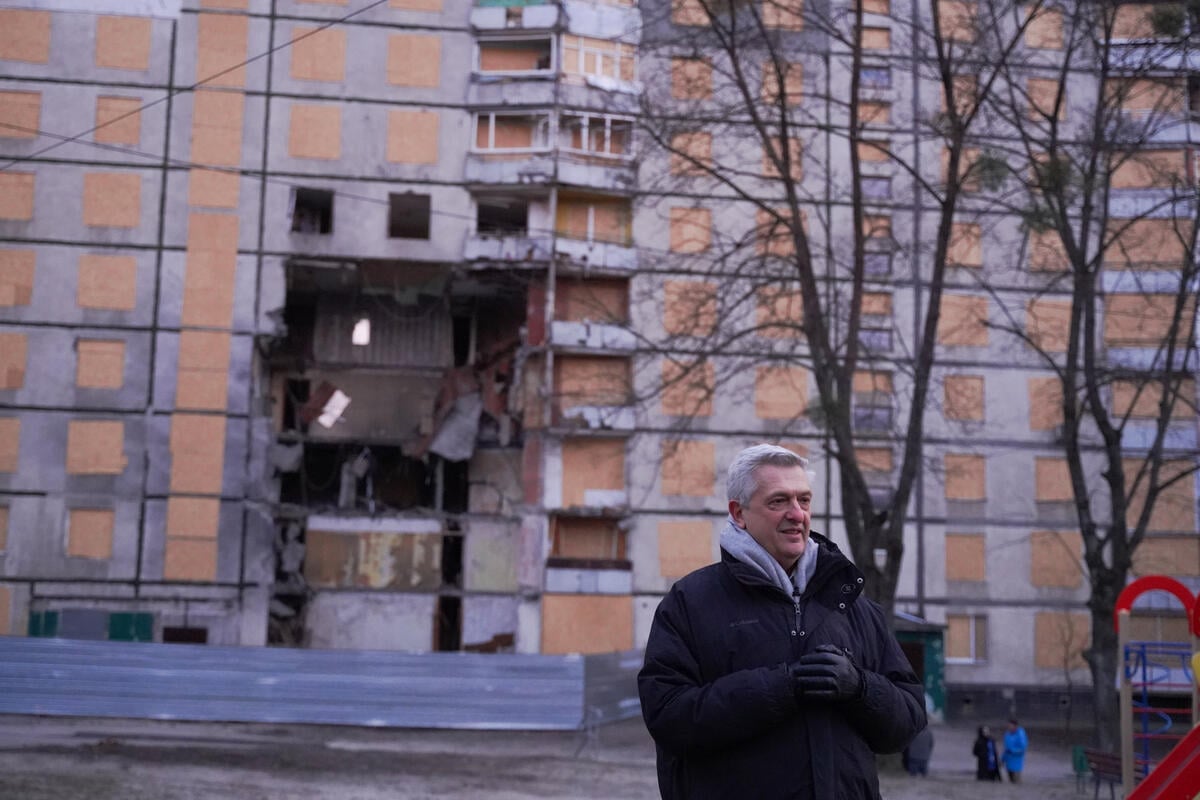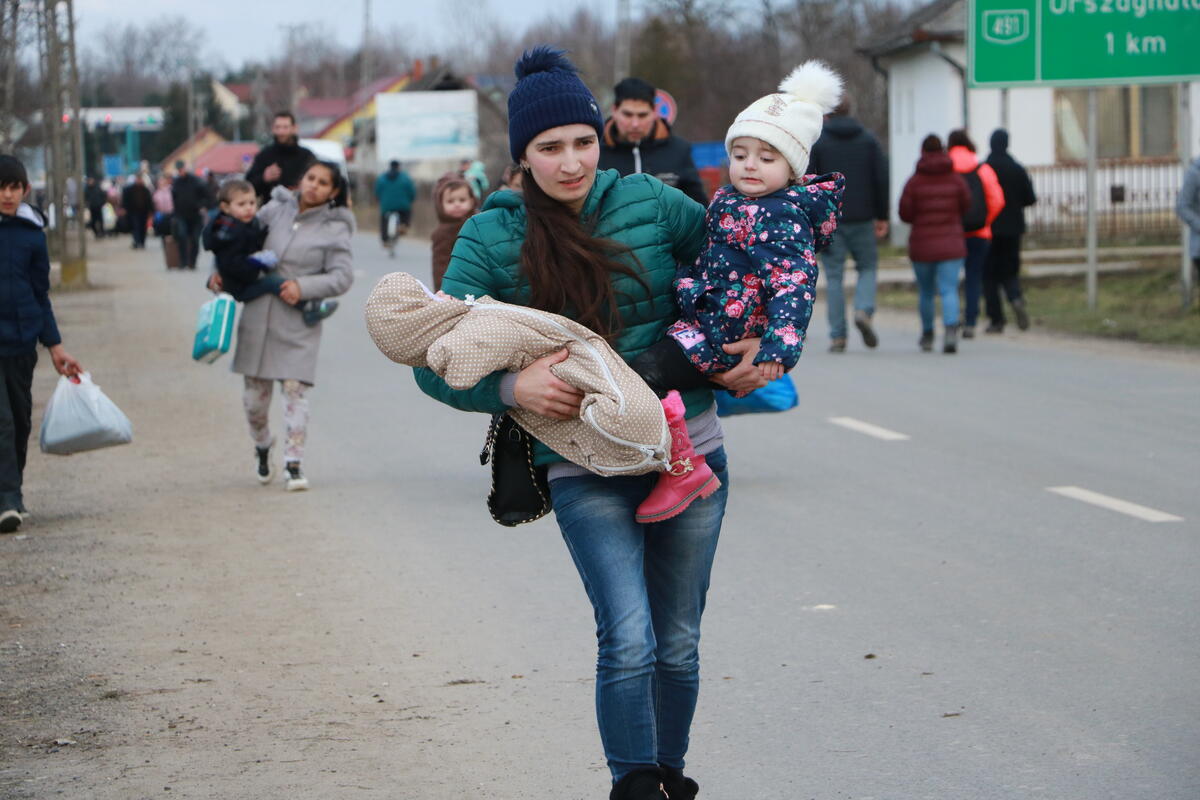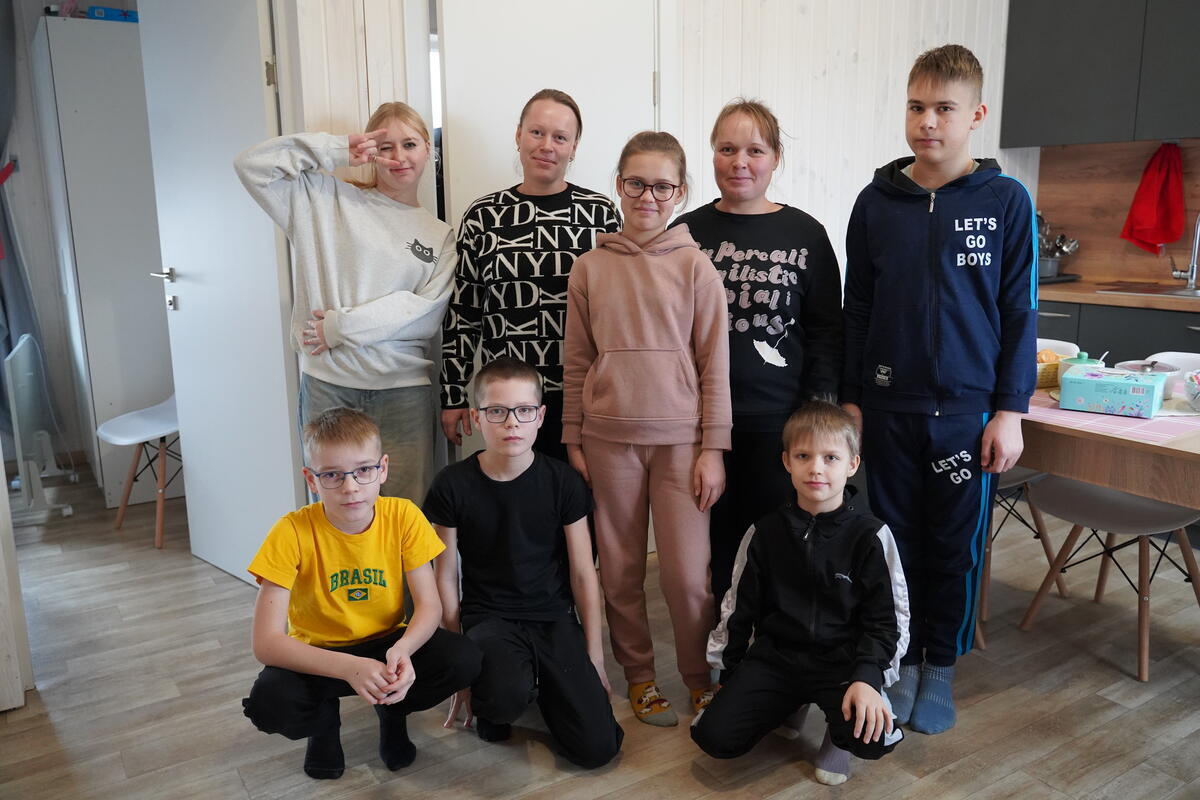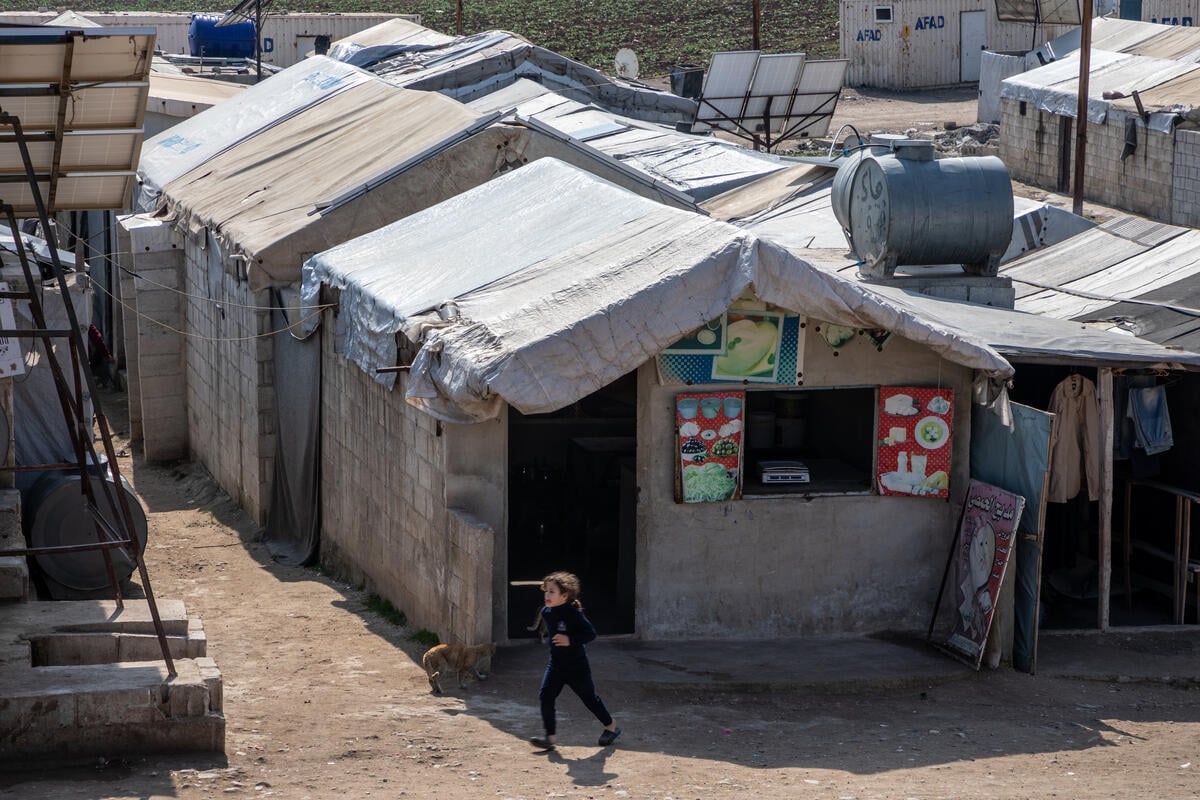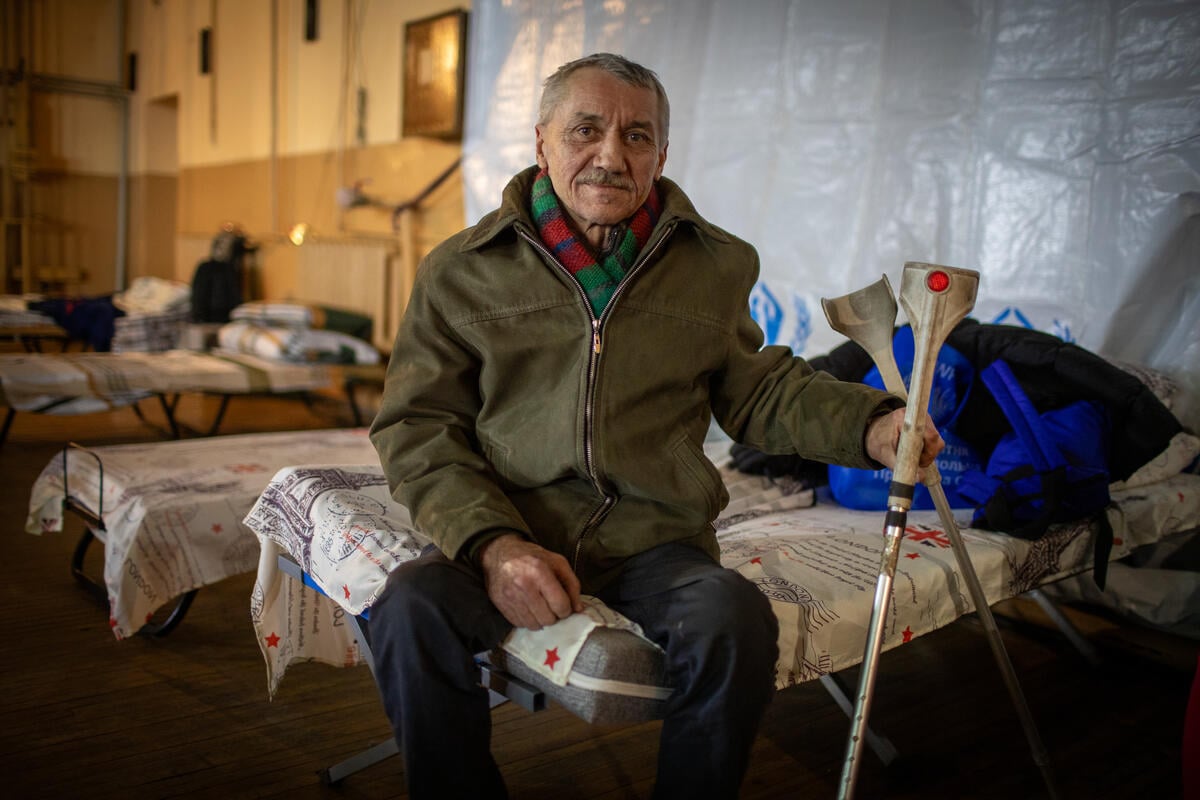Colombian lawyer puts life on the line to serve communities under threat
Colombian lawyer puts life on the line to serve communities under threat

Yasselly Martínez Ortiz chats with a resident of an indigenous village in the remote Chocó department in northwestern Colombia.
Yasselly works as a so-called “personera”, a sort of municipal ombudsperson tasked with ensuring that residents’ human rights are respected. It is an indication of just how risky their work is that Yasselly says that, as far as she knows, “personeros” are the only civil servants in Colombia who are automatically issued life insurance.
“We are the voice of those communities that have no voice,” she said, adding that this very public advocacy role has regularly made her a target. “I personally have received threats for doing the kind of work that we do… [and] I know that around 80 per cent of my colleagues have also faced threats.”
Even among this high-risk cohort, Yasselly’s position is particularly precarious: The 31-year-old lawyer is based in Bellavista, a small city that was founded in the wake of the 2002 massacre in the nearby hamlet of Bojayá, which left 79 people dead and became among the most emblematic events of Colombia’s 58-year-long armed conflict.
Villages locked down
The country’s Truth Commission recently put at around 450,000 the estimated death toll from the internal conflict between guerrillas, the Colombian military, and paramilitary groups. While the government signed a peace agreement with the main guerrilla group, the FARC, in 2016, the conflict between other guerrilla groups and paramilitary factions continues in Chocó – a sparsely populated jungle region on Colombia’s western Pacific coast – and beyond.
The ongoing violence here means that Yasselly is regularly called upon to grapple with such devastating situations as “confinement”, a widespread practice that sees armed groups lock down entire villages, warning residents not to leave the confines of their settlement, under pain of death or other retaliation, including sexual violence.
The inhabitants of Chocó are overwhelmingly of Indigenous or Afro-Colombian origin and have for centuries lived off the land, fishing in nearby rivers and farming the rich tropical soil. The practice of confinement wreaks havoc on their traditional ways of life, depriving people of such basic rights as access to health care, education, and even food for weeks, months, or even years on end, resulting in widespread hunger and desperation.
One such community is the Embera Dovida Indigenous Reservation, a village of around 150 people that is perched on the banks of the Atrato River. Theirs was once a “tranquil” life, says the village “gobernador” or chief, Darío Mecha*.

Darío Mecha* is the "gobernador" or chief of an Indigenous village on the banks of the Atrato River in the Chocó region.
“Before, we fished at the waterfall and worked in the fields,” he recalled. But then, in around 2004, armed groups appeared. “They started saying we could no longer walk to the fields, we could no longer work, and they also told us we weren’t to bring very much food” from the city, in the motorized canoes which are the region’s main form of transport.
“So now we just stay here,” he said, gesturing at the small grouping of thatched homes, perched on stilts. The confinement has led not only to nutritional problems, but also increased tensions in the community, as parents struggle to cope with hungry, bored children, and women live in terror of the omnipresent spectre of sexual violence, should they stray too far from the village.
“They hang on for as long as possible,” said Yasselly, “but when they start to see clashes within the villages, or they feel like they are at imminent risk of being killed, or when a member [of the community] is killed, they find themselves forced to flee.”

Residents of an Indigenous village use the Atrato River to do their laundry, wash, and prepare nets for fishing.
Easing suffering
With an estimated 6.8 million Colombians displaced within the borders of their own country, Colombia has the world’s second-highest population of internally displaced people after Syria.
All too often, entire villages in Chocó end up fleeing to the region’s largest city, Quibdó, where, deprived of their livelihoods, they struggle to scrape by and keep a roof over their heads. In a cruel twist of fate, these internally displaced people sometimes find themselves relegated to marginalized neighbourhoods that are also under the control of armed groups.
Yasselly works to ease the suffering of confinement by, for example, ensuring that schoolteachers can access confined communities and preventing loss of life or limb by reporting land mines – which are often planted by the armed groups – to the authorities in charge of removing them. UNHCR, the UN Refugee Agency, is helping Yasselly and other “personeros” do their work by donating equipment they need to do their jobs, as well as much-needed aid to the communities they serve.

Yasselly Martínez Ortiz walks along the riverside dock in Bellavista, a town in the remote Chocó department.
In addition to supporting "personeros", UNHCR works with national and local authorities to monitor situations of confinement, and to prevent displacement. The agency also helps strengthen indigenous and Afro-Colombian community-based organizations through the construction of infrastructure and trainings, and by creating safe environments for children and adolescents.
While the longevity and sheer scope of the conflict in Chocó mean that inhabitants’ needs far outstrip Yasselly’s capacity to respond, she says she takes great satisfaction in every act of violence she is able to address, or occasionally, even prevent.
“We aren’t going to resolve the problem because they are structural problems, but we do our part so that communities that find themselves in these situations get timely help and, in the midst of so many difficulties, have some hope,” said Yasselly, a native of Quibdó, whose family, like so many other Colombian families in Chocó and beyond, was also a victim of forced displacement.
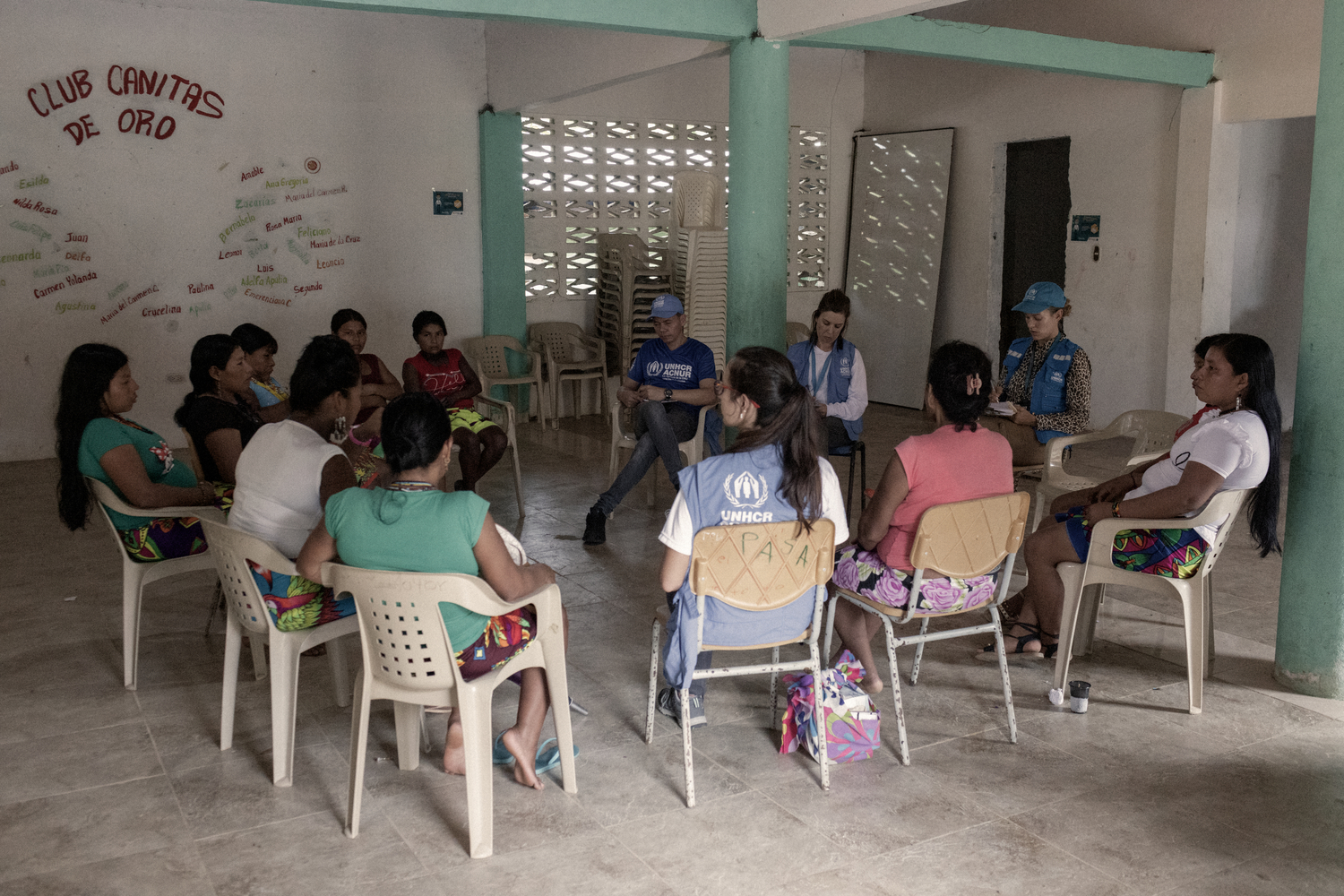
A group of Indigenous women meet in a community centre in Bellavista to try to find solutions to the problems of displacement. Many of them were forced to flee their villages by disputes between armed groups.
Yasselly says that despite the dangers of her job, both her family and her wider community serve as a wellspring of motivation. Having seen the effects of internal displacement ripple out, devastatingly, across the years and the generations, she knows first-hand just how crucial it is that she continues to stand up for the voiceless communities of Chocó.
“If those of us who are doing this work of defending human rights don’t do it,” she asks, “how will the communities survive?”
*Name changed for protection reasons


